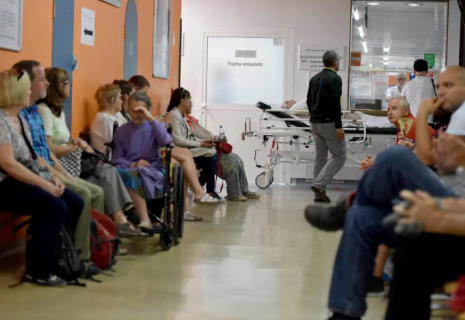
Deep sleep deficit tied to early Alzheimer’s clues, says study
Adults who sleep an insufficient number of hours in the deepest, slow-wave stage of sleep – REM – are more likely to experience a reduction in the volume of an area of the brain linked to the development of Alzheimer's disease.
A new American study has observed in these individuals with a lack of restful sleep a more frequent atrophy of the inferior parietal area of the brain, crucial for correct cerebral and cognitive functioning, CE Report quotes Kosova Press.
Atrophy is often detected in patients with this disease and is considered one of the first signs that the patient is suffering from Alzheimer's.
The REM phase of sleep actually functions as a "cleaner" of toxic waste accumulated during the day by the brain - actual dead cells, but also mental fatigue - and helps consolidate memories, process events and thoughts, and prepare the brain for the next day.
Research at Yale School of Medicine followed 270 people with an average age of 61 for years, all of whom were healthy at the start of the tests.
Participants underwent cognitive tests, brain radiological tests and sleep analyses: those who slept fewer hours in the REM phase, with interrupted or insufficient sleep, more often showed a shrinkage of the inferior parietal area of the brain.
"When the architecture of sleep changes," explains the research, published in the Journal of Clinical Sleep Medicine, "then the impact on the brain is potentially profound".
"These results show how reduced neurological activity during sleep, with a lack of REM phase activation, may contribute to reduced brain mass and thus increase the risk of Alzheimer's disease," commented study author Gawon Cho.

























